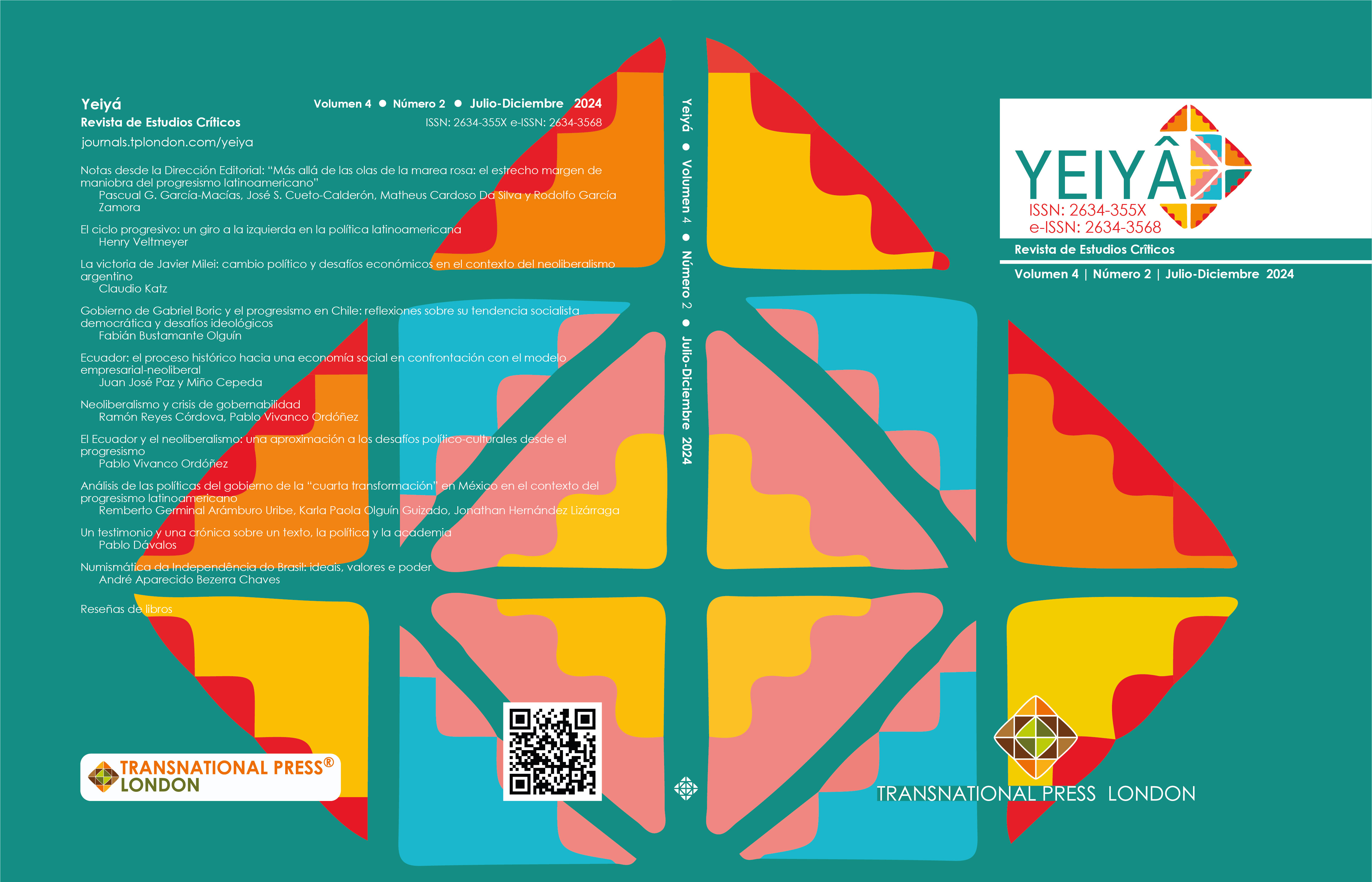Neoliberalism and Governance Crisis
DOI:
https://doi.org/10.33182/y.v4i2.3237Keywords:
Progressivism, Neoliberalism, Corruption, Drug trafficking, Guillermo LassoAbstract
Since 2017, Ecuador has taken a different path; After 10 years the progressive cycle comes to an end. The processes of paradigm change have allowed a permutation of public and social policies; The “neoliberal policies” began with the government of Lenin Moreno, applying economic adjustments in accordance with the conditions imposed by financiers such as the IMF. Jointly, the so-called “decorrelization” of the State is implemented, which has broken institutionalization, added to the application of neoliberal actions such as reducing the size of the State, deregulation, public disinvestment, deterioration of public services such as health, education and security. public, have determined a crisis situation at all levels. The government of President Guillermo Lasso in Ecuador has been characterized by his inability as a statesman expressed in structural weakness in the midst of a climate marked by political instability, allegations of corruption and drug trafficking.
Metrics
Downloads
Published
How to Cite
Issue
Section
License
Copyright (c) 2024 Author and Journal

This work is licensed under a Creative Commons Attribution-NonCommercial-NoDerivatives 4.0 International License.
CC Attribution-NonCommercial-NoDerivatives 4.0
Author and Transnational Press London







